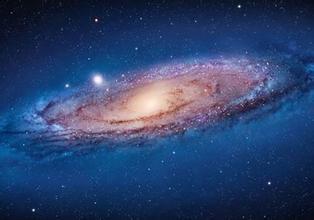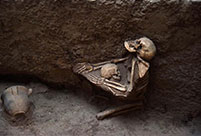

 |
LOS ANGELES, Aug. 11 -- An international team of astronomers have confirmed that the energy in the Universe today is only about half of what it was two billion years ago and they' re continuing to fade. The universe is slowly dying, their study showed.
The findings, presented at the ongoing International Astronomical Union's 29th General Assembly in Honolulu, Hawaii, reveal the extent to which the cosmos are apparently losing steam, which could help astronomers better understand the evolution and structure of the cosmos.
"We used as many space and ground-based telescopes as we could get our hands on to measure the energy output of over 200,000 galaxies across as broad a wavelength range as possible," says Simon Driver, who heads the large GAMA team.
The fact that the Universe is slowly fading has been known since the late 1990s, but this work shows that it is happening across all wavelengths from the ultraviolet to the infrared, representing the most comprehensive assessment of the energy output of the nearby Universe, according to a press release.
That means they can look at light from stars that are both young and old, as well as light that has been absorbed and then re- emitted by dust. So the new assessment of the Universe's decline includes information from a huge variety of galaxies, including those hidden behind dust.
"The Universe will decline from here on in, sliding gently into old age. The Universe has basically sat down on the sofa, pulled up a blanket and is about to nod off for an eternal doze," Driver said.
The study, which is part of the Galaxy And Mass Assembly (GAMA) project, the largest multi-wavelength survey ever put together, involved many of the world's most powerful telescopes including the European Southern Observatory's ground-based VISTA and VST telescopes at the Paranal Observatory in Chile and space telescopes like NASA's GALEX and WISE and the European Space Agency's Herschel.
 Shocking scenes found in 4000-year-old earthquake relic
Shocking scenes found in 4000-year-old earthquake relic Female soldiers add color to military parades
Female soldiers add color to military parades Taiwan campus belle with gorgeous look
Taiwan campus belle with gorgeous look  Stunning photos of China’s fighters and airborne troops
Stunning photos of China’s fighters and airborne troops Mums stage breastfeeding flash mob
Mums stage breastfeeding flash mob PLA South China Sea Fleet conducts live fire exercise
PLA South China Sea Fleet conducts live fire exercise Beauty of Tsinghua University transforms into car model
Beauty of Tsinghua University transforms into car model Official shot having sex with two college girls
Official shot having sex with two college girls Moscow “spider-man” climbs Chinese skyscraper
Moscow “spider-man” climbs Chinese skyscraper Daring duo
Daring duo Sorry is the hardest word for Abe
Sorry is the hardest word for Abe Coolest ice structures from around the globe
Coolest ice structures from around the globe Pecs appeal Shirtless male models flex their promo power
Pecs appeal Shirtless male models flex their promo powerDay|Week